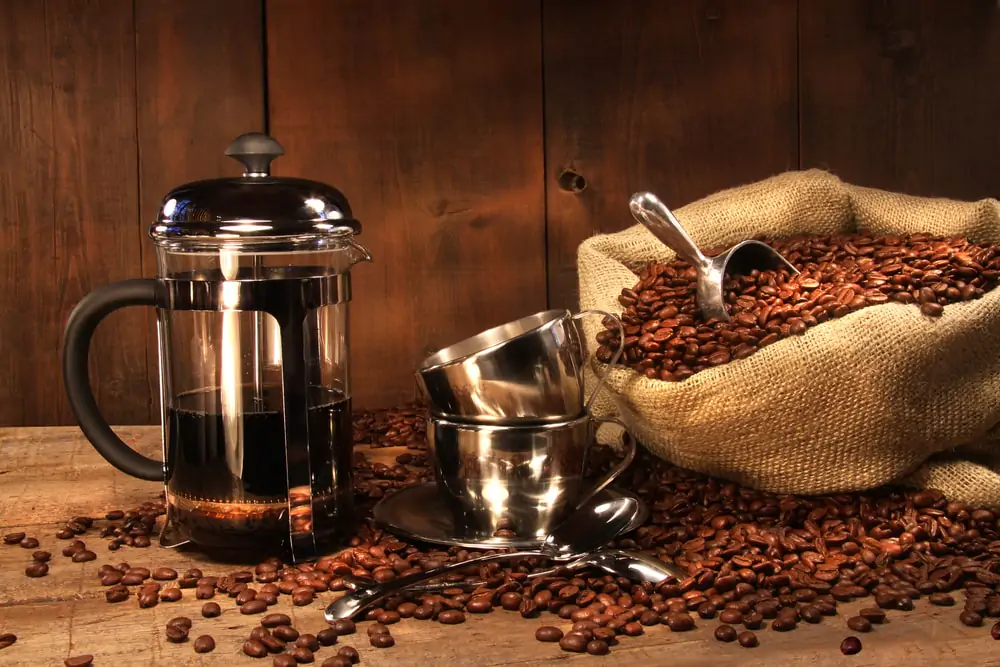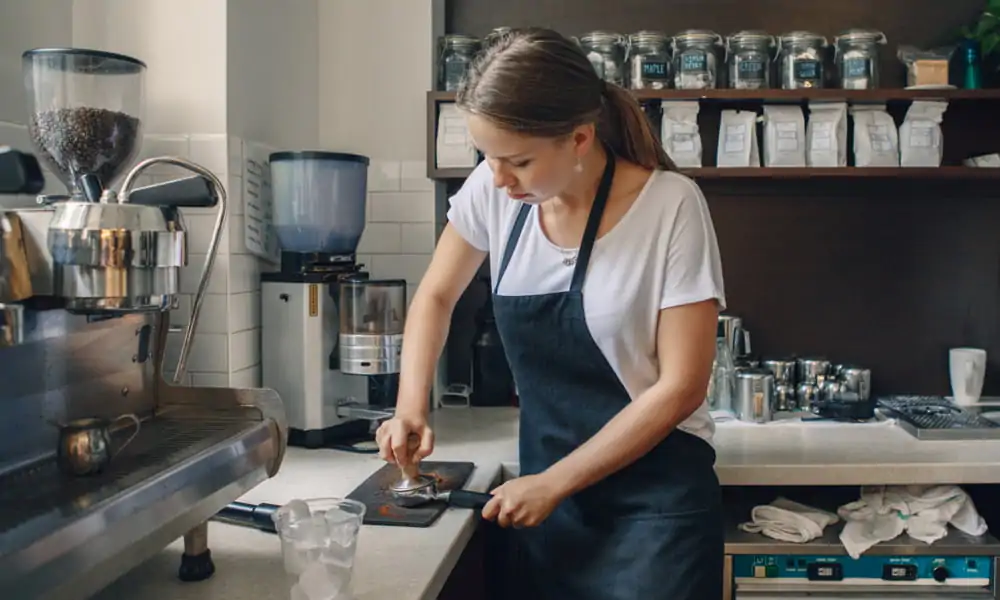Learn is French Press coffee bad for you and what other brewing methods may be better for you.
It seems there like there are regular dueling studies about the effects of coffee on the human body.
Is coffee good for us, or is it unhealthy? Does it cause cancer or prevent it? Does it raise or lower blood pressure? If you drink coffee regularly, will it give you high cholesterol levels or contribute to heart attacks?

Research on these issues has been conducted for decades. The consensus seems to be that overall, drinking coffee is good for you.
Regular coffee consumption is known to lower a person’s risk of developing type 2 diabetes, prostate cancer, liver diseases, and immune disorders.
Americans get the majority of the antioxidants they consume daily from their morning coffee. According to researchers, no other food source even comes close! This is a great reason to continue drinking coffee as the start to your day.
Antioxidants help our bodies stave off conditions like colon cancer, heart disease, arthritis, strokes, and respiratory diseases like emphysema.
Recently, however, a study on the different types of coffee brewing methods has caused news sites to claim that French Press coffee is bad for our health and we should stick to other brewing methods such as drip coffee.
Like all scientific studies, the truth turns out to be a bit more complicated. So, should you avoid coffee made in a French Press?
Types Of Brewing Methods
Researchers have divided coffee brewing methods into two types: Filtered and unfiltered.
Coffee beans contain hundreds of chemical compounds, and the different brewing methods affect which of these compounds end up in your coffee cup.
One class of chemical compounds–called diterpenes–and how they affect LDL cholesterol levels (that’s the bad kind of cholesterol) were the focus of that recent study, and this is what we’ll cover in this post.
Filtered Coffee
Filtered methods of brewing involve passing hot water through coffee grounds and then a paper filter. Drip coffee, pour-over coffee, and any brew method that passes the liquid through a paper filter are considered filtered.
Most drip coffee makers you see in American kitchens use paper filters. It is the most widely drunk type of coffee in the U.S.
So what’s the big deal with paper filters?
Two chemical compounds named cafestol and kahweol–both diterpenes–are fat-soluble, meaning these fatty acids are present in coffee oils.
Paper filters soak up these oils before any of the hot water, and consequently, very little cafestol or kahweol end up in your finished drink.
Unfiltered Coffee
Unfiltered coffee is any type of coffee brewed without paper filters. This includes French Press, Moka pot, percolators, Turkish coffee, cowboy coffee, and espresso.
This type of coffee is sometimes called ‘boiled coffee’ in the scientific literature because it tends to involve simmering coffee grounds in boiling, or nearly boiling, water.
Some methods then pass the liquid through a metal filter to separate the grounds, while other methods use gravity or steam pressure to separate them.
- French Press coffee is made in a specialized carafe with a metal plunger attached, called a cafetière. It presses down the coffee grounds after the liquid has steeped in them for a few minutes.
- Moka pots are made from aluminum or stainless steel, and use steam pressure to separate the liquid from the grounds.
- Percolators force nearly boiling water through coffee grounds using gravity, and separate them using a metal filter basket.
- Turkish coffee is made by boiling water and finely ground coffee in a copper pot with sugar, then letting it sit so that the coffee grounds settle on the bottom, before carefully pouring out the liquid above.
- Cowboy coffee is similar to Turkish coffee but without the sugar, and is usually made in aluminum pots over a campfire.
- Espresso is made by forcing nearly boiling water through compacted coffee grounds at high pressure, using a metal handheld filter.
When coffee is made without paper filters, the fat-soluble compounds cafestol and kahweol both pass through into the drink and are consumed by coffee drinkers. It also tastes gritty and unpleasant.
Brewing Methods That Can Make Both
Some brewing methods can make both filtered and unfiltered coffee. This includes cold brewing, Aeropress, and even using automatic drip coffee makers with a specially purchased permanent filter.

Cold brewing involves steeping cold water in coarsely ground coffee for 18 to 24 hours and then filtering out the grounds using a paper filter or a fine-mesh strainer.
An Aeropress is similar to a cafetière, but they use a plunger directly over a coffee cup to filter the grounds. Both metal and paper filters are available to use with the Aeropress.
Occasionally people place paper filters in between the coffee grounds and the gasket of Moka Pots, which would turn it into filtered coffee, but typically coffee made in a Moka pot is unfiltered.
You might also be interested in our explainer on why coffee is bad for dogs.
Why Does This Matter?
According to some studies, drinking coffee with cafestol and kahweol can raise cholesterol levels, especially LDL cholesterol (the bad kind), leading to an increased risk of heart disease.
Cafestol and Kahweol can have health benefits, too. Danish researchers recently discovered that cafestol helps lower blood glucose levels and increases insulin sensitivity.
Cafestol has also been shown to kill cancer cells, especially in the blood and kidneys. Kahweol helps stop fat accumulation, similar to the way fasting and low-carb diets do.
The Final Word: Is French Press Coffee Bad For You?
So should you drink unfiltered French Press coffee or should you switch to filtered? It depends.
Coffee lovers who are at risk of high triglycerides, cardiovascular disease, and heart attacks may want to stick to filtered coffee as it contains less cafestol.
Coffee lovers who suffer from type 2 diabetes or insulin resistance might be advised to drink unfiltered coffee to help keep their blood sugars in check, as it contains more cafestol and kahweol.
Whatever way you prefer to drink your favorite beverage, it should taste good, get you going in the morning, and make your day better, no matter what you have planned. However, coffee is bad for dogs. Similarly, tea is also bad for dogs. So don’t leave the grinds or remains around for them to eat!

